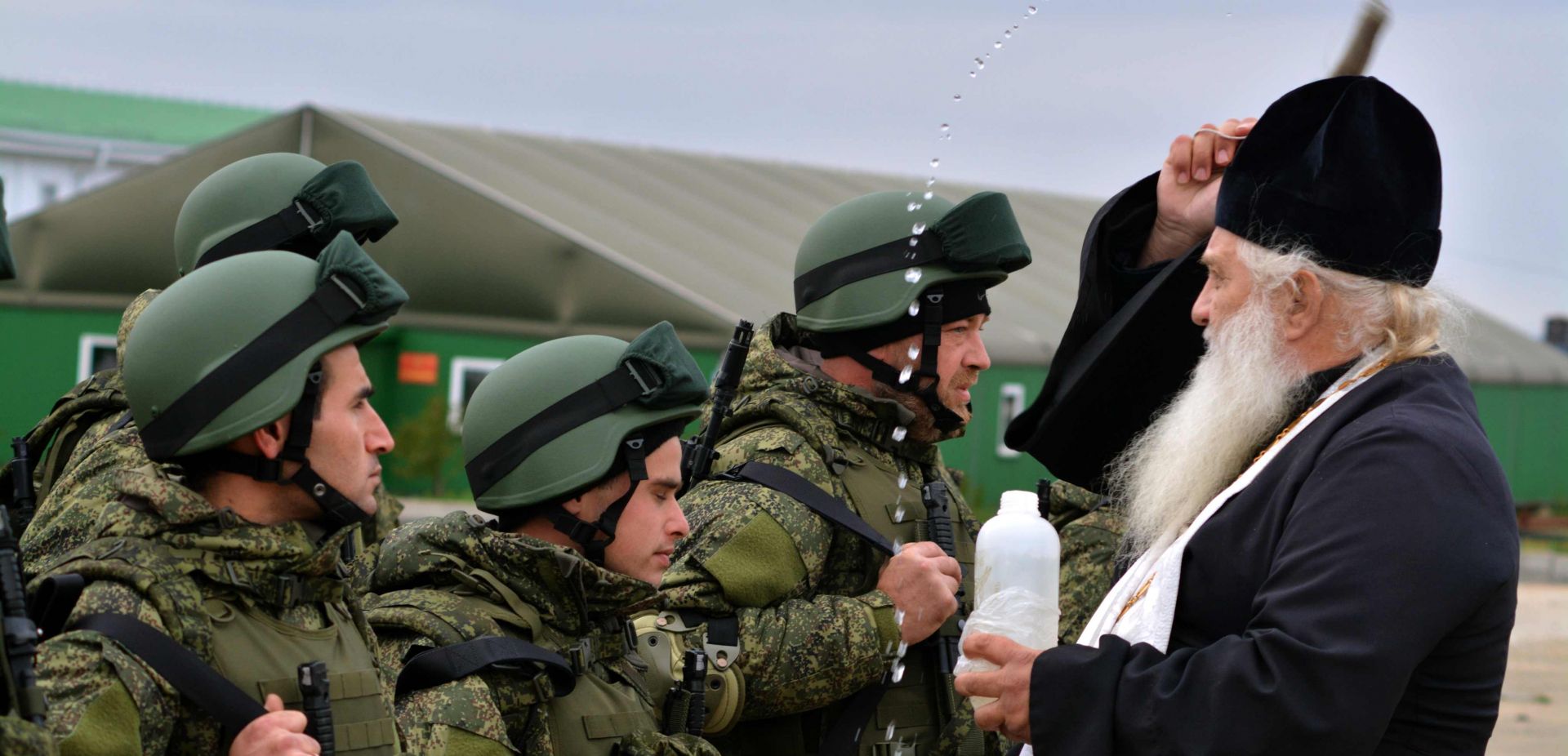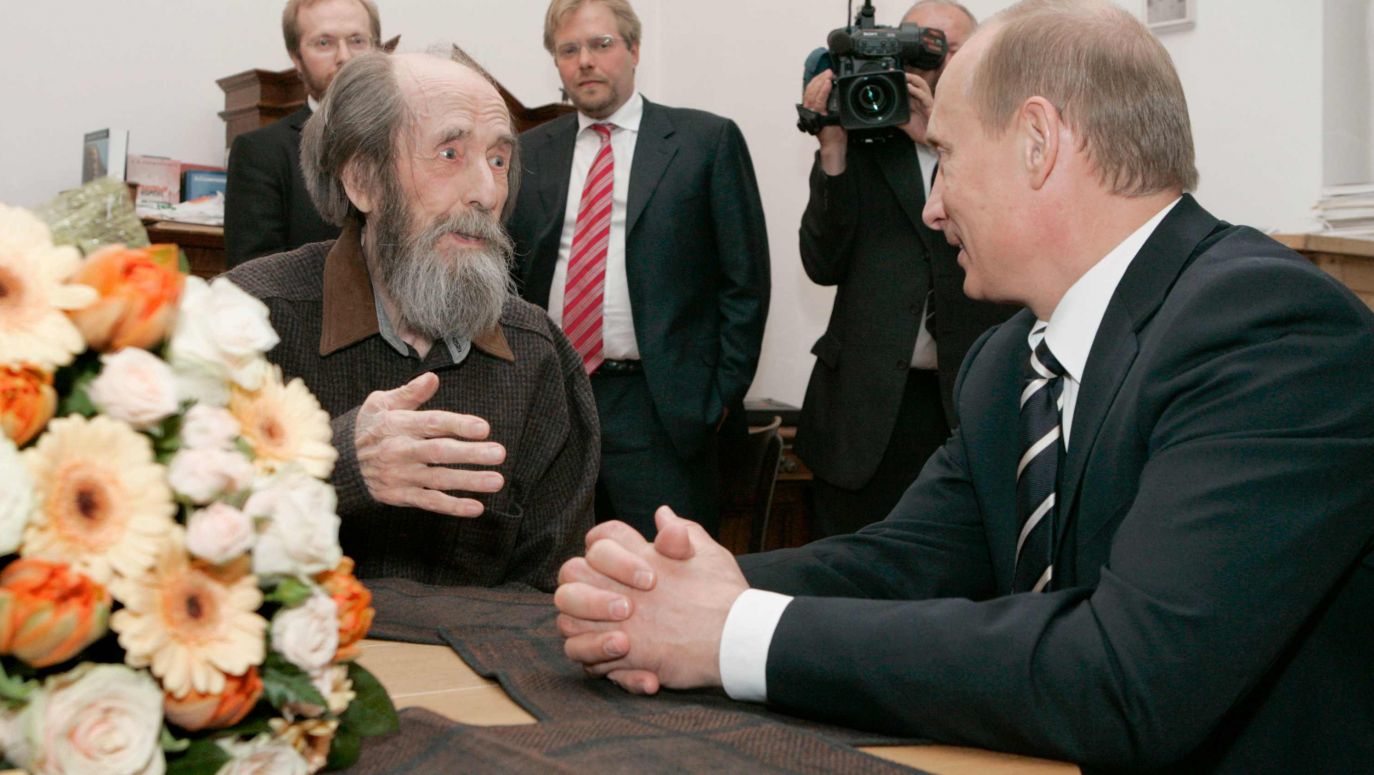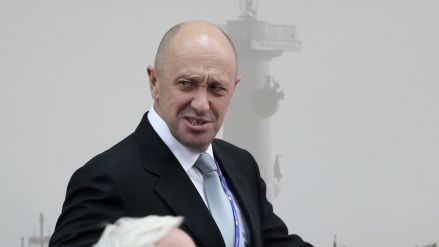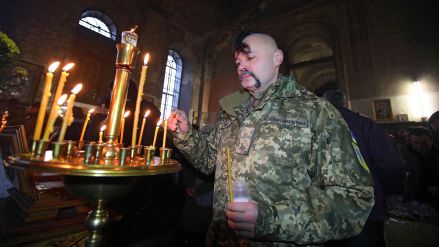TVP WEEKLY Do not you find it a little strange that the book about the Russian writer and Nobel Prize winner is published first in Poland and not in Russia?
PROF. BORIS SOKOLOV: Here in Russia we have not only technical but also economic problems. You all know the situation. I am now taking steps to publish in my country, but our book market is in a terrible state. People are much more interested in news than books these days. Poland, for example, has a population 3.5 times smaller and a publishing market, but the summary circulation of books here is higher than in Russia. So, I hope that the Solzhenitsyn biography will be available in Russia as well.
Let us talk about the writer you mentioned. You know, I always thought that Solzhenitsyn was sentenced to the most terrible gulag, but in this case the story was a little different.
Of course, during most of his sentence Solzhenitsyn was not in the forced labor camp far in Syberia, but in Moscow where he constructed buildings, and in the scientific institute for highly qualified prisoners. I would just like to remind that he was a mathematician and even during his imprisonment he was involved in creating projects for Moscow buildings. Only about the last three years he spent as a prisoner in forced labor special camp in Kazakhstan.
From your book we know that he was not only a war hero, but also a gifted scientist and a good communist. I have always asked myself, why did this system always want to destroy that kind of peoples?
Perhaps Solzhenitsyn was too involved with communism and sincerely believed in the idea. That is why he criticized Stalin's system as an distortion of Lenin's idea. He corresponded with his friend, and, unfortunately, the letters of the Red Army officers were checked by the special service SMERSH. His honest but careless behavior earned him an 8-year prison sentence for anti-Soviet views. Before his imprisonment, he was a supporter of the communist system, believing that the system should return to the roots set forth by Lenin. But during his imprisonment he realized that communism meant "evil" and he wanted to fight this "evil" as a writer.
How was it possible for "The Gulag Archipelago" to reach the West? Was it the first preview of glasnost or the carelessness of the KGB?
The book was published in December, 1973 with Solzhenitsyn's permission. One of the copies of the manuscript was confiscated by the KGB here in Russia. His assistant and typist Elizaveta Voronyanskaya was interrogated continuously for five days until she revealed the location of the manuscript. After that, she hanged herself. Then Solzhenitsyn ordered to publish "The Gulag Archipelago" in France, at the YMCA-Press Publishers. The publication of the book of the West was extremely unpleasant for the authorities of USSR, but brought Solzhenitsyn international recognition. And just after the publication of "The Gulag Archipelago" he was deported from the USSR.
 SIGN UP TO OUR PAGE
SIGN UP TO OUR PAGE
 Of course, we welcome Solzhenitsyn's anti-communist views on principle, but some of them contradict contemporary political correctness. For example, his anti-Semitism...
Of course, we welcome Solzhenitsyn's anti-communist views on principle, but some of them contradict contemporary political correctness. For example, his anti-Semitism...
I'm convinced that he wasn't anti-Semitic. If you look at his works, for example, "In the First Circle" or "A Day in the Life of Ivan Denisovich," he wrote about his heroes who were Jews with great sympathy, without the kind of prejudice typical of Nikolai Gogol or Fyodor Dostoevsky. His book about the relations between Jews and Russians "Two Hundred Years Together" is just a historical essay. There are some mistakes in this book, but it is not anti-Semitic.
For example, that the majority of the Cheka and the NKVD were Jews?
That is true. The NKVD was dominated by Jews in the middle of 1930s, just in the years of the Great Terror. After that, the number of Jews in the NKVD greatly decreased.

 SIGN UP TO OUR PAGE
SIGN UP TO OUR PAGE
 Of course, we welcome Solzhenitsyn's anti-communist views on principle, but some of them contradict contemporary political correctness. For example, his anti-Semitism...
Of course, we welcome Solzhenitsyn's anti-communist views on principle, but some of them contradict contemporary political correctness. For example, his anti-Semitism... 








